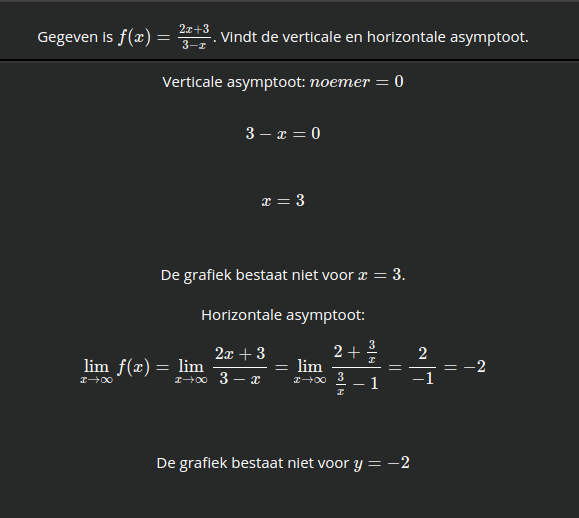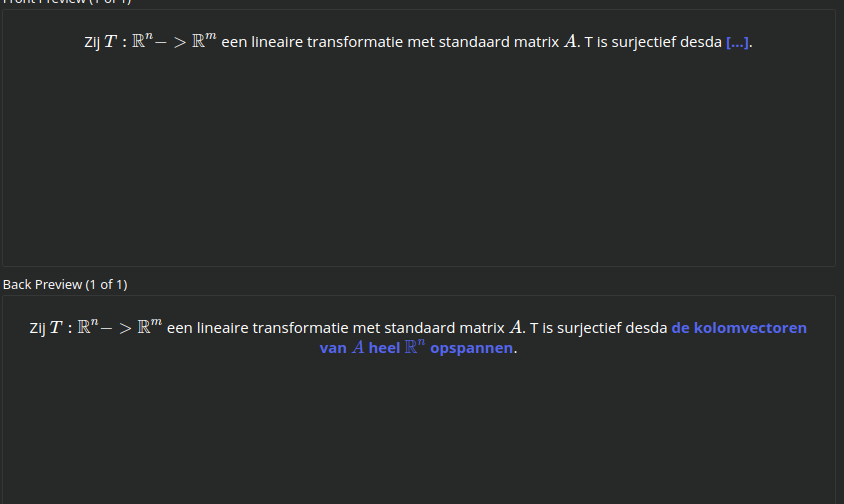voider1
voider1 has not written any posts yet.

Interesting. I have used multiple different approaches with Anki. Last year I had to learn all pre-university math to enter uni, and I decided to use Anki which worked out pretty well. For a lot of the problems it's about remembering what steps to take in general. So I put in practice problems so I could remember the steps. The numbers don't matter, they could've been anything.

I also tend to put in definitions, rules, theorems, standard and harder derivatives and primitives.
Now I'm in uni and I used Anki for learning linear algebra, I mostly tended towards clozes.

For linear algebra I tended to put in all theorems and facts, tried to keep them short so they're easier to remember and then do complementary exercises handed out by the course. Being an autodidact myself, I must say that if the course is done right it can make learning a lot easier. Sadly many of the courses weren't as good as the linear algebra course.
To me it seems that the world couldn't have turned out any other way, but it's useful to think about it as if it could in the moment. The decision you're ultimately making after careful consideration is the one you'd make, no matter how many times you'd rewind time. Having the ability to make a choice doesn't oppose determinism and its ramifications. With the right input you'll produce the right output.
Could you give an example of how you'd make a Fermi estimation of a program's runtime?